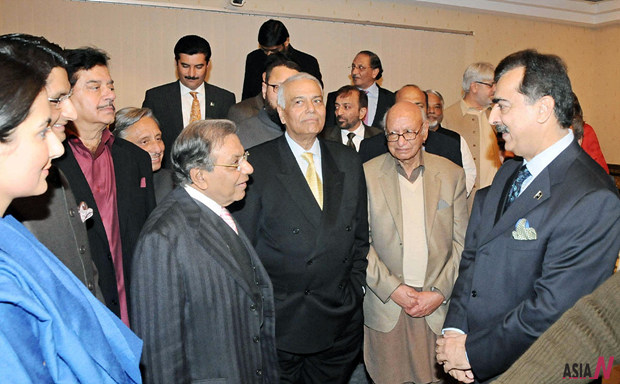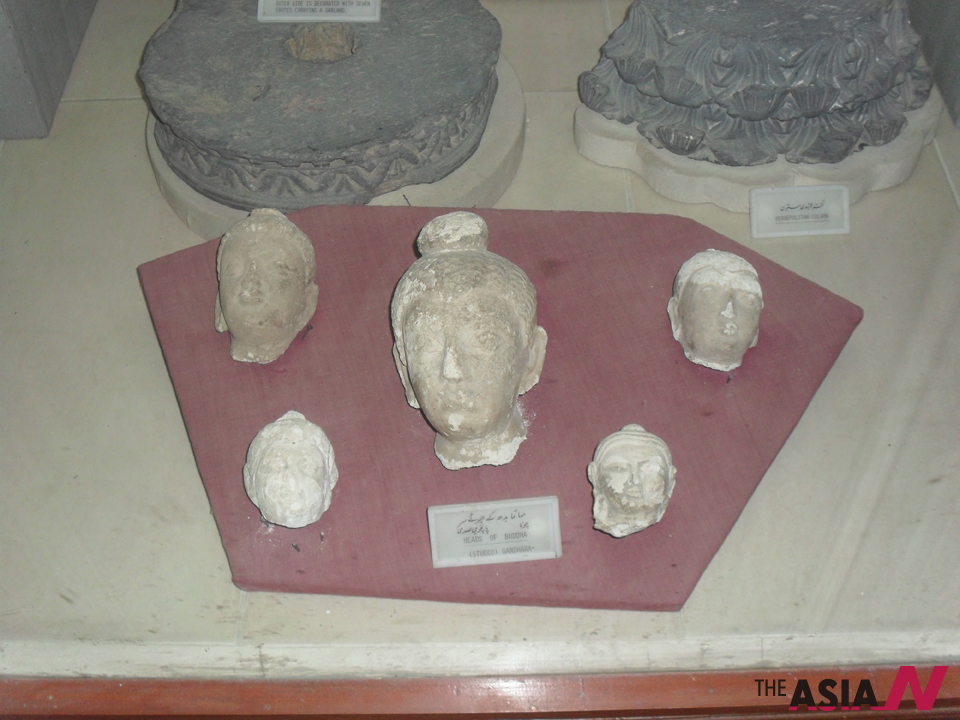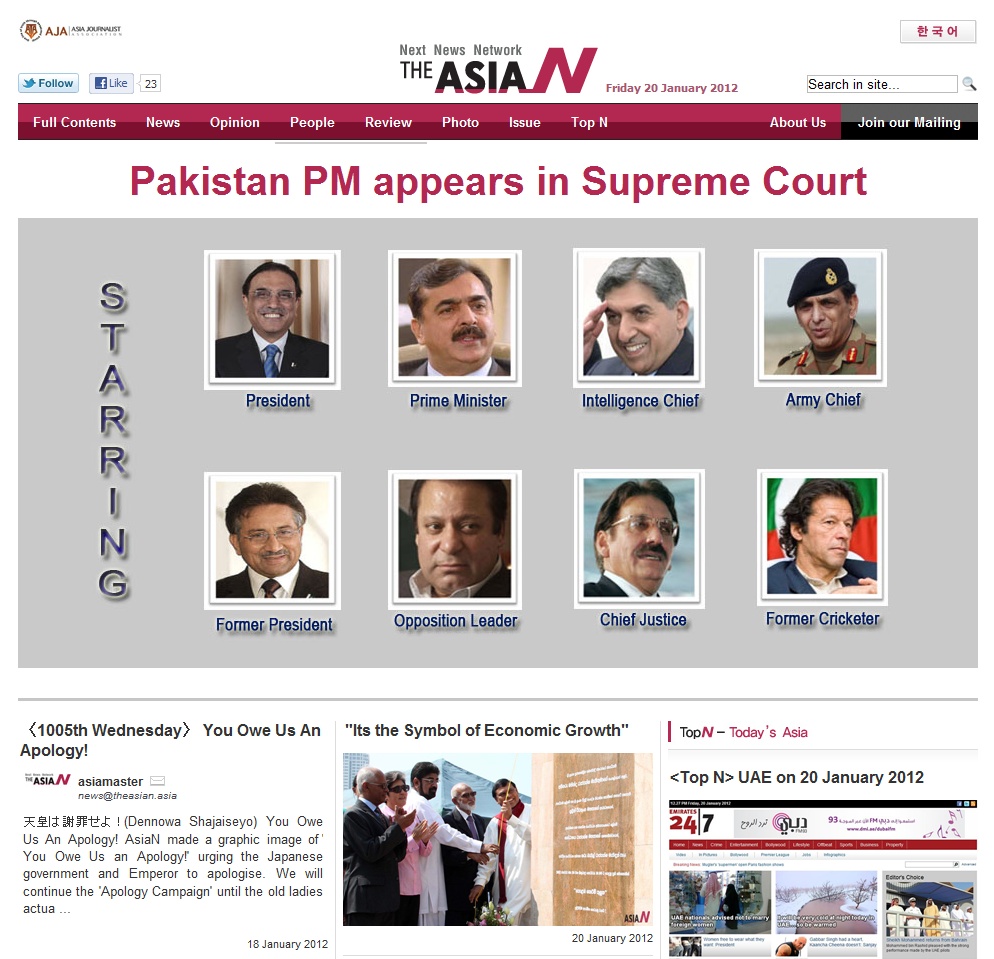
Pakistan PM appears in Supreme Court to Face Contempt of Court Notice

Islamabad, Jan. 19: Prime Minister Yousuf Raza Gilani appeared before a seven-member bench of Supreme Court on Thursday morning amidst extraordinary security including air surveillance for hearing in contempt of court notice issued to him this week for not reopening corruption cases against President Asif Ali Zardari and others who were given amnesty through National Reconciliation Ordinance in 2007 by then President Gen. Pervez Musharraf.
Prime Minister Gilani drove himself to the court at 9.25 am. The heads of the coalition partners, including cabinet ministers and senior party leaders, accompanied him for which the Supreme Court had issued special passes in view of tight security owing to high profile case.
Gilani’s court appearance comes after weeks of political turbulence in Pakistan that has strained relations between the country’s civilian and military leaders.
Prime Minister Syed Yousuf Raza Gilani while presenting his views before the Supreme Court bench said he has spent six years in prison and was never reluctant to appear before the court which shows that he always respected the court.
“I cannot even think of ridiculing the court,” Gilani said, however added that all over the world presidents enjoys immunity and Constitution of Pakistan also provides immunity to the president. “That is why we did not write to Swiss authorities for reopening case against President of country,” he said.
In concluding remarks of his 7-minute argument, Prime Minister said that he will appear whenever the court will summon.
The court adjourned the hearing for February 01. The move came after Prime Minister Gilani’s lawyer asked for more time to look through records pertaining to the case.
Gilani, who will not have to appear at the next hearing on February 1, left the packed court room following the adjournment.
The corruption cases stem from money-laundering charges against President Asif Ali Zardari and his late wife and former Prime Minister Benazir Bhutto. A Swiss court convicted them in absentia in 2003 of laundering millions of dollars.
After controversial amnesty granted in 2007 by then President Pervez Musharraf to Zardari, Benazir Bhutto and thousands of other politicians and bureaucrats, the Pakistan government asked Swiss authorities to drop the case.
In 2009, the Pakistani Supreme Court ruled the amnesty was unconstitutional and called on the government to reopen the cases, including Zardari’s. The government has not done so, and the court apparently lost patience.
Since Gilani is the head of the government, the judges view him as responsible and want him to explain why the government has not followed the court’s order and issued him contempt notice and summons on January 16.







